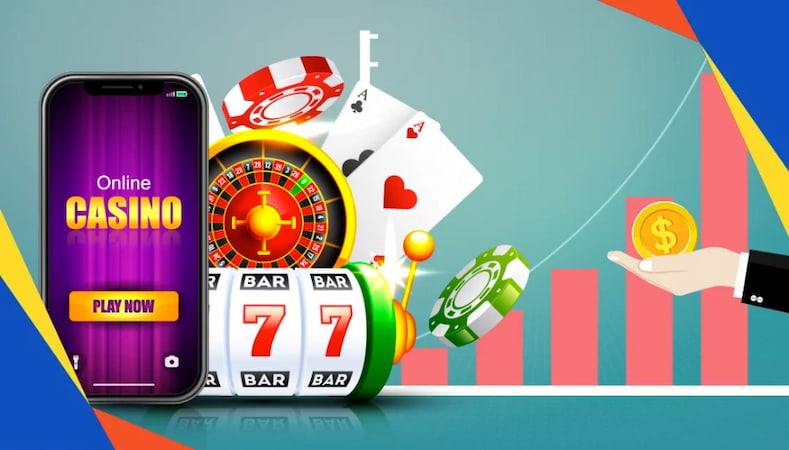
Decentralized Gambling Explained
In recent years, the concept of decentralized gambling has gained significant traction in the gaming community. By eliminating traditional intermediaries and harnessing the power of blockchain technology, decentralized gambling offers a unique approach to online betting that emphasizes transparency, security, and fairness. This transformative trend allows players to engage in gaming activities without relying on centralized organizations. For a seamless experience, you might want to check out Decentralized Gambling Explained ramenbet apk that enhances your decentralized gambling journey.
What is Decentralized Gambling?
Decentralized gambling refers to online betting platforms that operate on blockchain technology rather than through centralized servers. This means that the rules and outcomes of games are governed by smart contracts, allowing players to place bets and interact without the need for a traditional casino or bet operator. By leveraging cryptocurrencies, decentralized gambling platforms can offer faster transactions, lower fees, and increased privacy for users.
The Role of Blockchain in Gambling
At the heart of decentralized gambling lies blockchain technology, which provides a secure, tamper-proof ledger for all transactions. This ensures that every wager and game outcome is recorded in a way that is visible to all participants, significantly reducing the risk of fraud. Additionally, blockchain technology allows for provably fair gaming. Players can verify that the outcomes of their games are fair and not manipulated by the casino or betting operator.
Key Benefits of Decentralized Gambling
1. Transparency
One of the main advantages of decentralized gambling is transparency. Players can see how games are run, how outcomes are determined, and how funds are distributed. This transparency builds trust among users and ensures a level playing field.
2. Security
Decentralized platforms are inherently more secure than traditional online casinos. With data stored across a network of computers (nodes), there is no central point of failure that can be exploited by hackers. Furthermore, the use of cryptocurrencies adds an extra layer of security, as transactions do not require sharing sensitive personal information.
3. Lower Fees
By cutting out the middleman, decentralized gambling platforms can offer lower fees for transactions. This is particularly beneficial for players, as it means they can keep a larger portion of their winnings. Additionally, many platforms opt for cryptocurrencies with low transaction fees, allowing for near-instant deposits and withdrawals.
4. Accessibility

Decentralized gambling platforms are often designed for global access. Players from different countries can participate without worrying about local regulations or restrictions that may apply to traditional online casinos. As long as players have an internet connection and a cryptocurrency wallet, they can join in on the fun.
Challenges Faced by Decentralized Gambling
1. Regulatory Issues
Despite the advantages, decentralized gambling faces regulatory scrutiny. Many governments are still adapting to the rise of cryptocurrencies and blockchain technology, and this can create uncertainty for operators and players alike. While some countries embrace decentralized betting, others may impose restrictions or outright bans.
2. Lack of Consumer Protection
While decentralized gambling platforms promote fairness and transparency, the lack of regulatory oversight can also leave players vulnerable. Unlike traditional casinos, which are required to adhere to consumer protection laws, decentralized platforms may not offer recourse in cases of disputes. This highlights the importance of choosing reputable platforms with clear policies and established reputations.
3. Technical Barriers
Understanding how to navigate decentralized gambling platforms can be challenging for some users, especially those who are not well-versed in cryptocurrency and blockchain technology. This can limit the accessibility of these platforms to a wider audience.
Popular Decentralized Gambling Platforms
Several platforms have emerged in recent years that exemplify the decentralized gambling trend. Here are a few notable examples:
- Augur: A decentralized prediction market that allows users to create and bet on events.
- FunFair: Focuses on providing an equal opportunity gaming experience through blockchain technology.
- 1Broker: Allows users to bet on various markets like forex, stocks, and more using Bitcoin.
Future of Decentralized Gambling
As technology continues to evolve, decentralized gambling is likely to become more mainstream. As players seek out alternatives to traditional online gambling options, decentralized platforms will need to appeal to a broader audience. Improved user interfaces, educational resources, and regulatory clarity will play crucial roles in shaping the future of this industry.
Conclusion
Decentralized gambling represents a significant shift in the online betting landscape. With blockchain technology at its core, this new model prioritizes transparency, security, and player empowerment. While challenges remain, the potential benefits make decentralized gambling a compelling option for modern players. As the industry grows, players must remain informed and choose reputable platforms that align with their values and needs. Embracing this change could redefine how we perceive and engage with gambling in the digital age.
